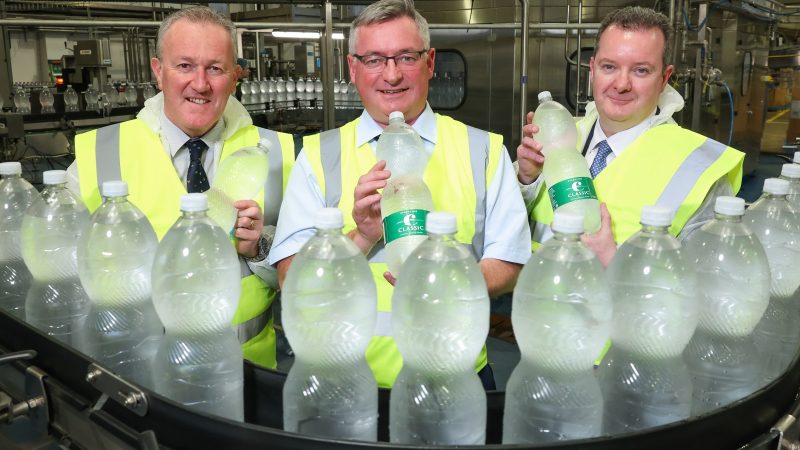Inflation joins long list of challenges

As the impact of recent challenges leaves an ongoing legacy, the food and drink sector must look at implementing appropriate measures ahead of time, states Charlie Kerlin, Head of Food and Beverage, Grant Thornton NI.
Each year when I sit down to consider what the next 12 months hold for the food and drink sector in Northern Ireland, there is invariably some major challenge threatening to cast a large shadow over the industry.
We’ve had Brexit, the implementation of the Northern Ireland Protocol and, of course, the Covid-19 pandemic and associated economic lockdowns.
While the impact of each of those challenges endures, the big issue in 2023 will undoubtedly be the continued pressure caused by inflation.
That’s not to say it’s all a story of doom and gloom. Northern Ireland has and will continue to be a part of the world synonymous with good food and drink, with home-grown brands known for their quality across the world.
However, industry analysts and economists alike predict that this is going to be a difficult year for many to maintain profitability.
RISING INFLATION
On the one hand, you have food price inflation along with the concern about what that is doing to consumer confidence and demand.
Then there is also the pure cost inflation that businesses across every sector are having to contend with.
The figures on the rising cost of food make for grim reading. Staples such as bread, milk, eggs and butter, the sort of items that every household needs, appear to have been hit the hardest in terms of inflation.
And the question then becomes how much of that is now pushed into the cost of the shopping basket.
‘For retailers, part of the response is about getting a real grasp of what your proposition is’
At the time of writing, analysts at Kantar were predicting inflation would push the annual cost of the annual grocery bill from £4,797 to £5,270, up 9.8%, but many will see this higher.
The impact is not being felt universally, however.
In 2022, Grant Thornton partnered with Retail Economics to produce The Cut Back Economy report that looked at how the current economic climate is impacting discretionary consumer spending.
Our research, conducted just as inflation was really starting to bite for consumers, showed that 86 per cent of households surveyed planned to cut back in some way, leaving just 14 per cent that could be considered ‘financially immune’ to rising prices.
INDUSTRY CONSOLIDATION
For retailers, part of the response is about getting a real grasp of what your proposition is, are you appealing to the right audience and how does strategy need to change in line with consumer behaviours – whilst remaining cognisant of a dwindling discretionary spend.
It’s not all about inflation, however. Other issues include the ever-present skills gap. We are seeing more companies investing in technology to address this, whether that be in automation or streamlining logistics, and there is a growing sense that those that aren’t doing so will start to be left behind.
Sustainability and ESG (Environmental, Social and Governance) in general will increasingly come to the fore throughout 2023.
Increasingly, operators will only work with suppliers that share the same sustainability credentials or ethos, and investors, from private equity institutions to banks, expect to see it too.
All of this means that we expect to see a certain amount of industry consolidation throughout the year.
Engaging with expert advisers and implementing appropriate measures and strategies ahead of time will be a crucial step for businesses hoping to tackle the challenges of 2023 head on.
TO READ CHARLIE’S INDUSTRY COMMENT IN THE 2023 NEIGHBOURHOOD RETAILER YEARBOOK, CLICK HERE







